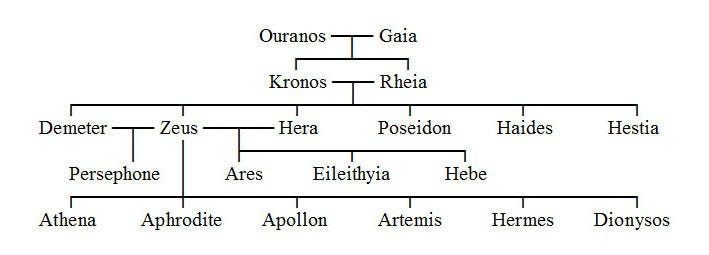Dear Classical Wisdom Member,
Sometimes you think you have it figured out… you understand the gist of the situation… you know the myth, the legend, the history well enough…
And then you learn there is a whole other level to the story.
Boom! Mind blown!
This brain boggling epiphany is always a delightful experience and a fantastic reminder that there is so much we don’t know, that there are many more layers to the lessons we do know and even more we don’t even know that we don’t know!
Take the Olympic goddess Hera, for instance.
She, I think most can agree, is a pretty unlikeable character. Her pettiness, her vengeful actions against innocents have a tendency to rub almost everyone the wrong way. Sure, Zeus deserves her wrath… but do all those who fall victim to his way need to suffer Hera’s never ending anger as well?
The thing is… Hera had a HUGE cult following. Her temples are everywhere and often older and more prestigious than those of her counterpart, the King of the Gods.
So, what gives? Where ancient women just massive fans of this vindictive goddess? Or is there a whole other story that explains this seeming contradiction? One that actually reveals an essential part of the Pre-Greek story…
Get ready to have your mind blown in today’s Member’s-Only, in-depth article devoted to the Queen of the Gods: Hera.
Enjoy!
All the best,
Anya Leonard
Founder and Director
Classical Wisdom
P.S. If you are not already a member of our growing community, level up your Classical Wisdom today and enjoy all our resources, including our in-depth articles, Ebook library, exclusive podcasts and more:
Hera: Suppression of the Native Queen
by Mary Naples
Of all the unhappy couples in Greek literature perhaps the unhappiest is that of the Olympian first couple themselves. As the goddess of marriage, a neglected Hera plays the quintessential role of the jealous wife for the ever-unfaithful Zeus—the lord of the gods at Mount Olympus. Often working on the sidelines against her husband’s interests, Hera displays a proclivity for instigating strife and mayhem—- particularly against Zeus’s vast collection of paramours and their offspring. Never mind that his paramours more closely resemble victims than lovers—-by no means does this stand in the way of divine retribution.
Hera’s facetious depiction in Greek literature as a jealous and vengeful wife is in marked contrast to the piety that her cult engendered. Throughout the Greek world, Hera was bestowed the greatest accolades of all the goddesses in the Greek pantheon; she is regarded as the patron goddess of marriage and the goddess of women and childbirth too. As the only wedded of the original Olympian goddesses, her presence loomed large at weddings where she presided over lawful unions and helped protect women from harm during childbirth.
Moreover, Hera holds an exalted place in the Olympian pantheon; not only is she the wife of Zeus but she is also his sister. In Hesiodic genealogy, Hera was the eldest daughter of the king and queen of the Titans: Kronos and Rhea.
In consideration of the multiple honors bestowed on her—-oftentimes to the exclusion of more benevolent deities—- it is difficult to reconcile the vicious Hera as she is portrayed in Greek literature to the benevolent Hera who is worthy of celebration.
So why was Greek literature unkind to Hera? Could the stormy relationship between Zeus and Hera be reflective of a culture clash? What can we learn from her earliest temples and how can we ascertain the historical origins -the pre-Greek roots- of Hera and her cult?
Hera’s Wrath
Stories of Hera’s savageness are plenty and manifold; too numerous to mention in the confines of this article. The following is a sampling of some of her most notorious…
Keep reading with a 7-day free trial
Subscribe to Classical Wisdom to keep reading this post and get 7 days of free access to the full post archives.








